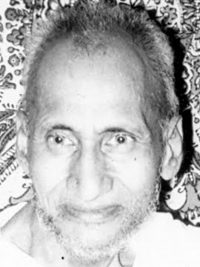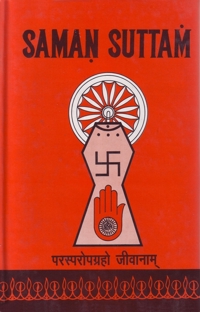15. Atma Sutra
PRECEPTS ON SOUL
Uttamagunana dhamam, savvadavvana uttamam davvam.
Taccana param taccam, jivam janeha nicchauyado. (177)Know for certain that the soul is the home of excellent virtues, the best among the substances and the highest reality among the realities. (177)
Jiva havanti tiviha, bahirappa taha ya antarappa ya.
Paramappa vi ya duviha, arahamta taha ya siddha ya. (178)The Jivas (souls) are of three kinds: (1) the extrovert soul, (2) the introvert soul and (3) the supreme soul. The supreme soul are of two kinds: (i) the Arhats (the worthy souls) and (ii) the Siddhas (the liberated). (178)
Akkhani bahirappa, amtarappa hu appasamkappo.
Kamakalmka-vimukko, paramappa bhannae devo. (179)He, who is led by his senses is extrovert or Bahiratma and he who exercises self discretion (i.e. not guided by external factors) is introvet or Antaratma. The self who is liberated from the pollution of the Karmas is paramatma. (179)
Sasarira arahamta, kevalananena muniya-sayalattha.
Nanasarira siddha, savvuttama-sukkha-sampatta. (180)The Arhats are those who know all the objects by their Omniscience and have human bodies, the Siddhas are those who are encdowed with the highest bliss and possessed of a body in the form of knowledge. (180)
Aruhavi antarappa, bahirappo chandiuna tivihena.
Jhaijjai paramappa, uvaittham, Jinavarindehim. (181)Lord Jinesvara has said 'relinquishing the extrovert attitude by your mind, speech and body realise the antaratma and contemplate on the supreme soul (paramatma)'. (181)
Caugaibhavasambhamanam, jaijaramarana-royasoka ya.
Samthana samhanana, savve jivassa no santi. (182)Transmigration within the four species of living beings, birgh, old-age, death, disease, sorrow, a family, a place of birth, a status in the scheme of Jivasthanas, a status in the scheme of marganasthanas none of these (really) belongs to a soul. (182)
Vannarasagandhaphasa, thipumsanavunsayadi-pajjaya.
Samthana samhanana. savve jivassa no santi. (183)The soul has no colour; no taste, no smell, no touch, no gender like male, female or neuter; no bodily form and no bone-structure. (183)
Ede savve bhava, vavaharanayam paducca bhanida hu.
Savve siddhasahava, suddhanaya samsidi jiva. (184)All these states of beings are said from the empirical point of view. From the real point of view, all souls including the mundane souls are perfect in nature. (184)
Arasamaruvamagandham, avvattam cedanagunamasaddam.
Jana alingaggahanam, jivamanidditthasamthanam. (185)Know that in fact the soul is devoid of taste, form smell and sex. It is indescribable and possessed of consciousness, it is not amenable to inferential cognition, and is devoid of bodily structure. (185)
Niddando niddando, nimmamo nikkalo niralambo.
Nirago niddoso, nimmudho nibbhayo appa. (186)The pure soul is free from activities of thought, speech and body. He is independent, infallible and fearless. He is also free from mineness, attachement and delusion. (186)
Niggantho nirago, nissallo sayaladosanimmukko.
Nikkamo nikkoho, nimmano nimmado appa. (187)The pure soul is free from complexes, attachment, blemishes, desire, anger, pride, lust and all other kinds of defects. (187)
Navi hodi appamatto, na pamatto janao du jo bhavo.
Evam bhananti suddham, nao jo so u so ceva. (188)The state of pure knowership is neither vigilant nor non-vigilant. (because vigilant means absence of passions and non-vigilant means presence of passion). The knower self is called pure, because it is only knower and nothing else. (188)
Naham deho na mano, na ceva vani na karanam tesim.
Katta na na karayida, anumanta neva kattinam. (189)The soul is neither the body, nor the mind nor the speech, nor their cause. Nor is he doer, nor the cause of action nor the approver of action. (189)
Ko nama bhanijja buho, naum savve paraie bhave.
Majjhaminam ti ya vayanam, jananto appayam suddham. (190)After knowing that the pure soul is different from everything else, is there any wise man who says 'this is mine'? (190)
Ahamikko khalu suddho, nimmamao nanadamsanasamaggo.
Tamhi thio taccitto, savve ee khayam nemi. (191)I am alone, really pure and free from attachment. I have the faculties of apprehension and of comprehension. Being steadfast in concentrating the real nature of self I discount all those forms that are alien to me. (191)
 Jinendra Varni
Jinendra Varni

